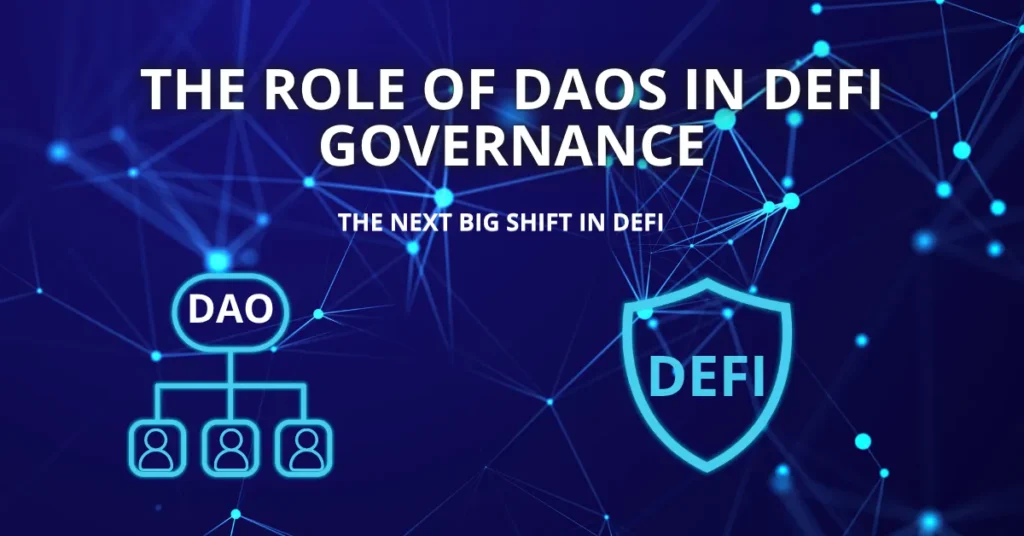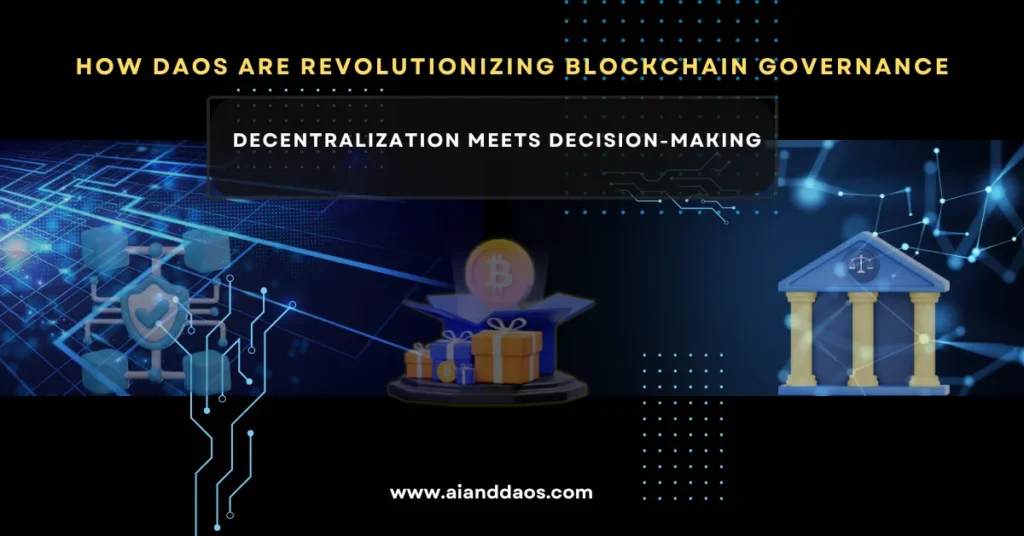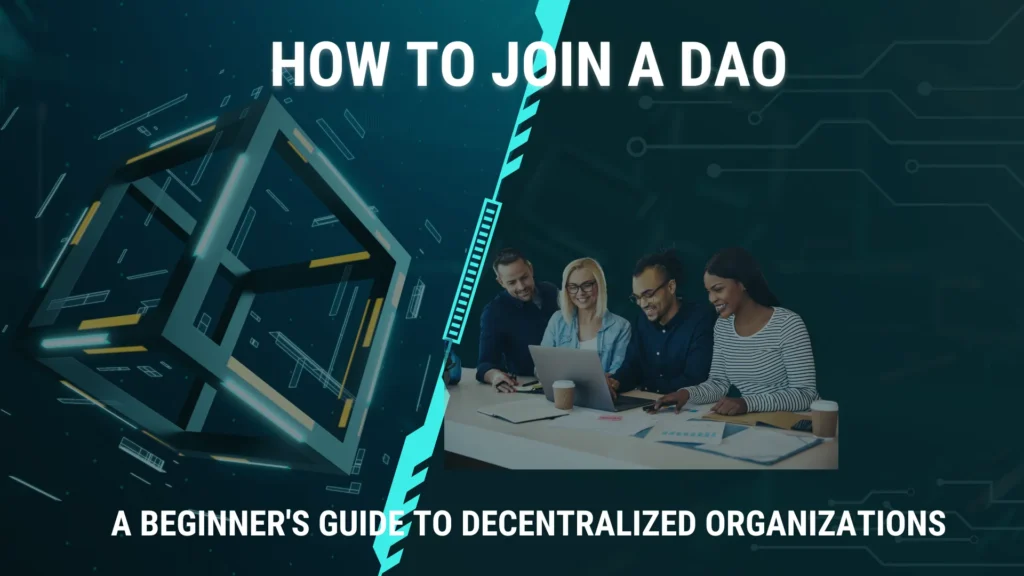Why is governance the missing piece in DeFi’s growth story?
Lack of proper decentralized governance hinders Defi growth. The very reason behind it is that governance revolves around a small group of token whales. The community rule is negligible. Both factors lead to failure to adapt to market and regulatory challenges. For example, Uniswap’s governance is often dominated by a small group of large token holders, limiting broader community involvement.
How Decentralized Organizations-DAOs are Revolutionizing Blockchain Governance
Why DAOs Matter in DeFi?
Defi decisions are controlled by small token whales. People cannot fully enjoy the benefits of decentralization. For this reason, DAOs stepped in. Because of its decentralized nature and being a digital, decentralized, community-based organization, decisions are made by the community. These active communities decided governance rules in the form of smart contracts. These decentralized smart contracts ensure transparency and give a threatening end to the influence of small token whales.
With the DAOs, users not only get ownership rights over the defi protocols but also enjoy treasury management. This is not confined to codes or smart contracts only. Maker Dao and Uniswap Daos are its active examples. Join these DAO token holders who have complete control over the decision-making process and have the power to allocate treasury funds. In a nutshell, you can say that daos have transformed DeFi into a truly community-owned financial system.
How Does Governance Work in DeFi Today?
In DeFi, governance decisions are made by voting. Token ownership gives the right to vote. More token means more power, and vice versa. Token holders have the right to adjust the gas fee to allocate treasury funds. Due to token power, token whales have more influence cos they have more tokens, which results in a concentration of power in the hands of a few. Governance councils, delegated voting, or off-chain tools like Snapshot have attempted to address the issue created by token whales, but to no avail. Defi governance has to struggle to balance decentralization with efficiency and transparency.
Why are DAOs better suited for DeFi governance?
DAOs are Better Suited for DeFi Governance Because of the Following Reasons:
Decentralization: the decentralized nature of DAOs makes DeFi democratic. Decisions are made by the community, not by a few token whales.
Blockchain-based: decisions are recorded on blockchain, so it is difficult to erase or alter, which guarantees transparency and fairness.
Automation: DAOs are automative in nature, which makes manipulation and human bias minimal.
Inclusivity: DAOs give voting power to global users because of their inclusive nature.
Accountability: Every action is traceable, making communities more responsible in decision-making.
Incentivization: Governance tokens reward participation, encouraging more active engagement.
Flexibility: DAOs can adopt advanced models like quadratic voting or delegated voting to improve fairness.
What Weaknesses Threaten DAO Effectiveness, and How Can They Be Mitigated?
Whale Domination (Plutocracy), Low Voter Participation, and Smart Contract Vulnerabilities are some of the major weaknesses that threaten the effectiveness of DAOs.Whale domination manipulates decisions.
We can restrict their influence by quadratic voting and reputation-based voting. Low voter participation leaves the voting to a small group of people.
We can offer rewards and incentives to increase voter participation. A bug in smart contracts make it vulnurable to weakness which creates problems in execution. To ensure the smooth execution of decisions, there is a strong need to conduct audits and bug bounties to protect DAOs.
How will DAOs evolve in the next phase of DeFi?
In the next phase, DAOs and Defi will become mature. This phase will be sophisticated, scalable, and legally recognized.
Dao will be no more token-based voting model. It will adapt other token models, such as quadrating and a reputation-based model.
The creation of sub-teams will make decision-making more efficient. The emergence of cross-dao partnerships leads to shared liquidity, joint ventures, and a broad governance ecosystem.
The integration of AI in DAOs will enhance the efficiency of DAOs and facilitate easy fraud detection.
In the future, daos will be recognized legally, and its hybrid models will be introduced, which will make daos more advanced.
FAQ: The Role of DAOs in DeFi Governance
1. What is a DAO in DeFi?
A DAO is a community-run system that lets users vote on protocol decisions using smart contracts.
2. Why are DAOs important for DeFi?
They shift control from teams to the community, making DeFi more transparent and truly decentralized.
3. How do DAOs work in DEXs?
Users vote on things like fees, upgrades, and liquidity using governance tokens.
3. How do DAOs work in DEXs?
Users vote on things like fees, upgrades, and liquidity using governance tokens.
5. What’s the future of DAOs in DeFi?
More automation, AI-powered decisions, and scalable governance systems.
6. Are DAOs fully decentralized?
Not always. True decentralization depends on community participation and fair voting.
Why should DAOs be seen as the cornerstone of DeFi’s future?
DAOs are the backbone for the future of DeFi. You can observe a true shift in DeFi only by witnessing a genuine transformation in DeFi; only DAOs can make the future financial system resilient, inclusive, and truly community-owned. Without Dao’s transparency and community-driven decisions, Defi will be a nightmare; otherwise, it will be controlled by token whales or core teams, which will disalign with the founding vision of finance: open and borderless.


